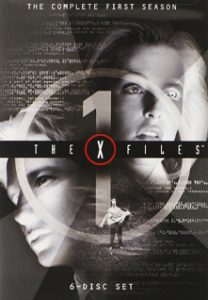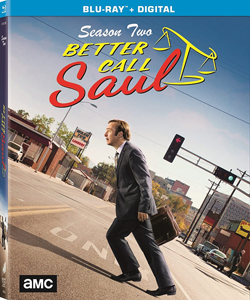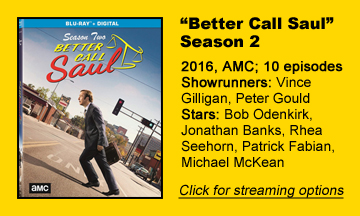With AMC’s “Breaking Bad” spinoff “Better Call Saul” set to air its sixth and final season later this year, we’re looking back at the first five seasons of Vince Gilligan’s second masterpiece series over five Thursdays. Next up is Season 2 (2016):
Black-market economics lesson
“Breaking Bad” was a revelatory tour of how black-market economics and business works, and “Better Call Saul” also has plenty of that in its second season; indeed, Mike (Jonathan Banks) works his way toward employment with Gus Fring by the end.
But Season 2 is more notable for examining how above-board employment can wear on a person. Jimmy McGill (Bob Odenkirk) doesn’t break bad in this batch of 10 episodes – I assume his “no turning back” point will come when he changes his name to Saul – but this is where it becomes clear he’s a square peg in the round hole of law firms.
Gilligan’s saga has never been funnier than in writer Gordon Smith’s “Inflatable” (episode 7), where Jimmy purposely gets fired from Santa Fe-based Davis & Main by playing bagpipes in his office and going No. 2 without flushing.
After the dismissal, I’m reminded of “Cast Away” when Jimmy contentedly sleeps in his cramped old office at the back of the Vietnamese nail salon, having realized he’ll only be happy if he runs his own firm, his own way.
A more serious take on ‘Office Space’
Setting aside hilarious stuff like the “Inflatable” gags and Jimmy’s “squat cobbler” fable to get a client off the cops’ radar in Gennifer Hutchison’s “Cobbler” (2), “BCS” Season 2 plays like a less-comedic version of “Office Space.” Jimmy and girlfriend Kim (Rhea Seehorn) are top-shelf employees at their respective firms – Kim at Albuquerque-based HHM, the “M” represented by Jimmy’s brother Chuck (Michael McKean).
But they are treated poorly by their bosses; Clifford (Ed Begley Jr.) sanctions Jimmy for running a (hugely successful) commercial without the board’s approval. And Howard (Patrick Fabian) demotes Kim for not informing him of Jimmy’s actions. (The firms are working together on the ongoing Sandpiper case.)
Jimmy and Kim both quit, which seems to be a losing scenario for the firms, as they won’t easily plug in new people of that caliber. I can’t figure out why bosses act this way, and Gilligan doesn’t provide answers. But anyone who has worked a blue-collar cubicle job knows this is not a case of bad writing; it’s just a truism that for many people wired to be bosses, their ego trumps the bottom line.
Revisiting ‘BrBa’ territory
“BCS” might actually have clearer answers about the hows and whys of the black-market drug trade. In Season 2, it treads thematic ground covered by “BrBa,” but it’s enjoyable to revisit this ground as Mike takes on the operation of Hector Salamanca (an always scary Mark Margolis).
When Mike buys and tests a rifle, and crawls to a sniper position in the starkly beautiful New Mexico desert, it’s like we’re home again.

Up to this point, Banks had played Mike as a weathered tough guy who greets the world on its own nasty terms — with the exception that he won’t kill in cold blood. But now he’s vengeful, albeit still super-cautious.
It’s fascinating to see how even his perfectly executed plan (using spikes to stop Salamanca’s frozen-desserts truck and steal the drug money from the tires) backfires, as he inadvertently gets two people killed: Salamanca’s crew murders both a roadside Good Samaritan and the truck driver.
Like its parent series, “BCS” reminds us that large drug-dealing operations are successful because even the mildest hint of a loose end is solved with cold-blooded murder. (And in the case of vehicles, with a chop shop.)
And the show always makes us feel the weight of this. We spend the cold-open of one episode simply watching Salamanca’s delivery truck driver go through his daily routine. We don’t get to know him well, but at least we know he is a person, rather than a generic drug dealer.
So when he’s later murdered in case he’s a loose end (which we know he isn’t), we feel the wastefulness of human life. On “BCS,” we trust that seemingly “boring” sequences will mean something, and that trust is always rewarded.
The emergence of Kim Wexler
The “Breaking Bad”-versus-“Better Call Saul” debate won’t be settled anytime soon, but “BCS” clearly earns a check mark under the category of female lead. Skyler White is a logistical thorn in Walter’s side, benefiting from his meth-making while criticizing him for it.
But Kim Wexler doesn’t try to have it both ways; this makes her more likable, and more of a character rather than an obstacle.
In the season’s most gripping moment, in Peter Gould’s “Nailed” (9), Chuck theorizes that Jimmy sabotaged Chuck’s Mesa Verde files via an overnight copier place in order to get the client to go back to Kim. Thanks to Seehorn’s facial acting, we suspect Kim recognizes Chuck is correct, yet she fiercely defends Jimmy — then later rips into him in the car.
It’s been the question from the beginning: How and why will Jimmy and Mike break bad? It hasn’t happened through 20 episodes – perhaps why “Better Call Saul” is sometimes labeled as slow-paced – but the question remains fascinating.
Pushing the show into “Breaking Bad”-level greatness, though, is the question of if and when Kim Wexler will break bad.
IMDb Top 250 trivia
- The season’s most popular episode is the thrilling “Nailed” (9), with a 9.4 rating, wherein both Mike and Jimmy get further into the weeds of crime than they intended. Mike’s sabotage of a drug truck leads to a Good Samaritan’s murder, and meanwhile, Jimmy changing the Mesa Verde address in Chuck’s files leads to his brother’s latest hospitalization.


